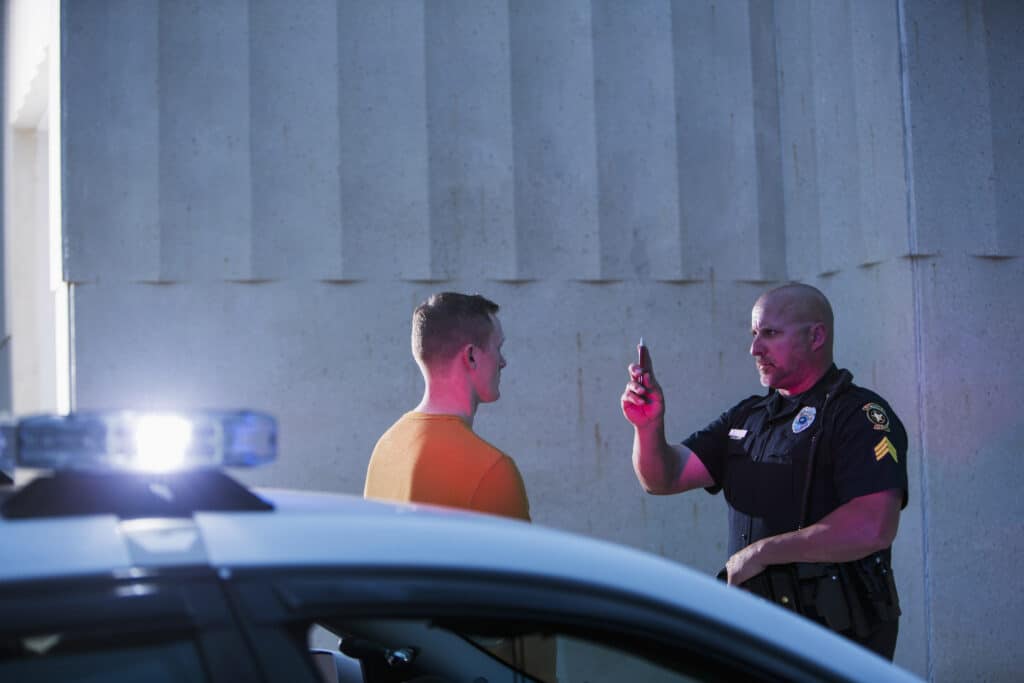Driving while intoxicated (DWI), also known as driving under the influence (DUI) is a serious…

Common Misconceptions About DUI/DWI Charges Debunked
When you hear discussions about DUI and DWI charges, it’s crucial to recognize that not all the information circulating is accurate. From overestimating the clarity of the legal definitions to underestimating potential consequences, misunderstandings about DUI charges are extensive.
Common misconceptions can lead to confusion and missteps in handling severe legal allegations. In this blog, we’ll discuss common DUI and DWI misconceptions and set the record straight to help you better understand the realities of these offenses. By shedding light on common myths, you’ll be better equipped to navigate the legal landscape should you or someone you know be confronted with such circumstances.
Continue reading below to learn more and discover how Sloan Law Office can help guide you through DUI/DWI legal troubles.
Understanding the Differences Between DUI and DWI
When it comes to driving-related offenses, two phrases frequently cause confusion: DUI and DWI. Although they may seem interchangeable, understanding DUI and DWI laws and the nuances between these charges is crucial in navigating the legal system should the need arise.
DUI stands for Driving Under the Influence, typically referring to the impairment due to alcohol or drugs, while DWI can denote Driving While Intoxicated or Impaired. The impairment might be related to alcohol, drugs, or other substances, legal or otherwise. Often, when DUI charges are explained, what’s highlighted is the nuance of ‘under the influence’ – indicating that any substance causing impairment, not just alcohol, could lead to such charges.
Understanding the potential penalties is essential for grasping the gravity of these legal matters. Drunk driving, in any form, carries severe consequences that shouldn’t be underestimated. The implications of drunk driving charges can include costly fines, suspension or revocation of your driving privileges, and even jail time. DUI or DWI convictions might also entail mandatory education programs, community service, or the installation of an ignition interlock device on your vehicle.

Common Myths about DUI/DWI Charges
Understanding the facts about DUI and DWI charges is crucial for anyone navigating the complexities of these serious legal issues. Misinformation and drunk driving misconceptions may lead you astray, affecting your decisions and views on these matters.
Myth: You must be visibly intoxicated to be charged with a DUI or DWI
Legal charges do not rely solely on outward signs of intoxication. A charge can be based on the results of a breathalyzer, blood test, or officer’s judgment of your impairment.
Myth: Drinking coffee or taking a cold shower can help you pass a breathalyzer test
Drinking coffee or taking a cold shower might make you feel more alert, but neither method decreases blood alcohol concentration (BAC).
Myth: As long as your vehicle is not in motion, you can’t be charged with a DUI
If you are in control of a vehicle, even if it’s not moving, you can be charged with a DUI if you are over the legal BAC limit or show signs of impairment.
Myth: DUI is a minor infraction that has no long-term effects
A DUI or DWI is a severe offense that can lead to significant legal troubles, including a revoked driver’s license, increased insurance rates, fines, and even jail time.
Myth: Refusing a breathalyzer test means you can’t be convicted
Law enforcement officers are trained to administer field sobriety tests to gauge a driver’s level of impairment. If you show signs of impairment during these tests, officers may use this as evidence of DUI, independent of breathalyzer results.
Myth: If you are arrested for a DUI, there is no point in fighting the charge because you will be found guilty
Every individual is entitled to legal representation and due process. Various defenses may apply to your case, possibly resulting in reduced or dismissed charges. Consulting with an attorney specializing in DUI/DWI law can provide options you might not be aware of.
Myth: A DUI Is Only Related to Alcohol Consumption
When seeking DUI/DWI legal advice, you’ll quickly learn that the scope of DUI laws stretches far beyond alcohol consumption.
- Driving under the influence of illegal drugs can lead to DUI charges, as these substances can significantly impair one’s ability to operate a vehicle safely.
- Prescription medications are not exempt from DUI scrutiny. Medicines, even when legally prescribed, can have side effects such as drowsiness or delayed reaction times that impair driving.
- Over-the-counter medicines, which can be bought without a prescription, might also impair driving and result in DUI charges if they affect your ability to drive.
- Many incidents show that individuals are often unaware that substances other than alcohol can lead to the same implications as drunk driving and are subject to similar penalties.
Understanding the Legal Blood Alcohol Concentration (BAC) Limits
Another common misunderstanding when it comes to DUI/DWI charges is the notion that staying below the legal BAC limit guarantees you’re in the clear. However, it’s vital for you to understand that the legal BAC limits are not foolproof shields against DUI or DWI charges.
The legal BAC limit is a benchmark used within DUI laws, usually set at 0.08% for drivers over the age of 21. While this figure is often referenced, it is not a universal indicator of one’s ability to drive. The legal limit is a threshold above which you are presumed impaired, but it is not a definitive line that separates legal from illegal behavior when behind the wheel.
Law enforcement officers are trained to detect signs of impairment that might not be captured through quantitative BAC levels. The implications of drunk driving go beyond the numbers, and even if your BAC registers below the legal limit, any indication of impaired driving can result in a DUI or DWI arrest. If an officer deems you impaired based on behavior, driving patterns, or performance on field sobriety tests, you may face charges.
Choose Sloan Law Office for Your DUI/DWI Legal Needs
If you are facing DUI/DWI charges, the importance of expert legal representation cannot be overstated. The legal expertise of a DUI/DWI lawyer can be invaluable, offering you professional legal advice tailored to the specifics of your case.
Navigating the legal complexities of DUI/DWI charges can be overwhelming, but with Sloan Law Office, you’re not alone.
At Sloan Law Office, we understand the anxiety and uncertainty that come with legal challenges. With deep expertise in DUI and DWI defense and other driving-related offenses, we’re dedicated to offering compassionate, client-centered legal counsel to all our clients. Our dedicated team of criminal defense attorneys is committed to helping our clients navigate challenges and provide strategic defense plans for various legal matters.
If you or someone you know is facing a DUI/DWI charge, contact Sloan Law Office today to schedule a consultation with a Kansas City DWI attorney committed to defending your rights. Let us take the burden off your shoulders and ensure that your case is handled with the expertise and legal counsel it deserves.




This Post Has 0 Comments